Former President J.J Rawlings says the execution of the eight former head of states and senior army officers spared the country ethnic cleansing in the Ghana Armed Forces in the early days of the 1979 revolution.
The country’s leader for 19 years insisted the eight senior military officers were used as sacrificial lambs to atone for the craving for blood, which would have taken the lives of more than 80 senior military officers, who were from a particular ethnic group.
Hailed as ‘Junior Jesus’ and buoyed by the call for “blood to flow” Rawlings first signed the execution of the former head of state, General I.K Acheampong; and Lt General Edward Utuka, a former Commander of the Border Guards. The two were found guilty of using their positions to amass wealth and dissipating state funds. A firing squad executed them on June 16, 1979.

But that was just the beginning of one of the bloodiest moments in the country’s history.
Offering his version of the gory past on Sunday Night on Asaase Radio, Rawlings said the people wanted more heads and more flood. So the Armed Forces Revolutionary Council, a group of junior military officers, who overthrew the Supreme Military Council II on June 4, 1979, caved in.

Rawlings, who sounded like he was in charge of a pressure cooker, at the time, said the temperature and pressure of the country offered the military junta no choice.
“We did what we had to do, hoping and expecting that this was it. The two of them would have helped to assuage the rage. Approaching a week later, the temperature and pressure was building up again, which was equally understandable because a lot of officers were involved in that.
“Approaching one week, we had no choice but to start rounding up the others. Those generals were not slated to be executed. Some others, the true proper ones who should have paid that price, would run into 80 or more officers.
Round two executions
“Unfortunately, too many of the names belonged to a certain ethnic group. If we had to punish them with executions… That is all people wanted. This thing was going to look like some ethnic cleansing, and it would just collapse and lead to uncontrollable situations. That’s how come we had to load the fault on the head of the commanders, including innocent ones, and to limit the number,” he explained.
So 10 days later, two other former heads of state—Gen F.W.K Akuffo and General Kwasi Afrifa, who had retired from the military, but angling for office as a civilian, alongside Major Maj. Gen. R. E. A. Kotei, a former army commander; Air Vice Marshal George Yaw Boakey, a former Air Force Chief, and Admiral Joy Amedume, Chief of the Navy, had their bodies riddled with bullets at the Teshie shooting range. They were found guilty of the same charges as General Acheampong and Lt General Utuka.
Innocent souls
Rawlings admitted that some of them were innocent and were victims of a “moral battle.”
“If it had gone the other way, we could have easily have lost control. You probably have heard me a few times talking about the innocent ones as well. That is the painful one that one has to live with as well, because some of them were good people and didn’t deserve to die. That was the only way we could prevent the thing from getting out of hand,” he explained.
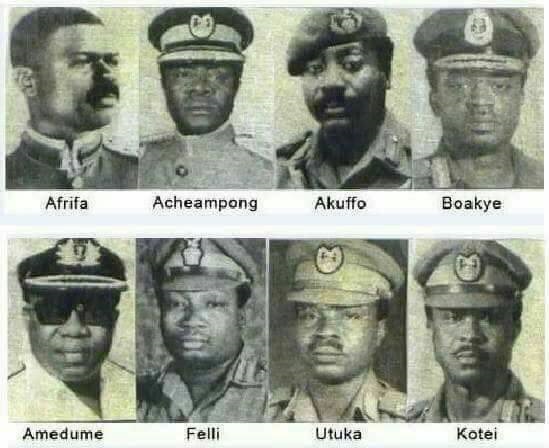
Why Gen Afrifa was killed
Although General Afrifa was not originally on the list, Rawlings claimed an unnamed General took advantage of his (Rawlings’) nativity to put the former head of state’s (1969-1970) name on the list.
He said the said General who is still alive accused Afrifa of diverting funds from an unnamed western organisation meant to counter General Acheampong’s Union Government campaign.
In 1977, General Acheampong brought forward the concept of union government (UNIGOV), which was to make Ghana a non-party state.
“It was obvious that his name would have to be added because we would have to make some serious sacrifices and the guiltier you are, the easier it could be. Here you have the list of innocent good people who would have to die to save hundreds,” the former President said.
For a man whose conscience has been raked in many such interviews over the years, Rawlings said he had no regrets about the execution.
“I feel sad but no regret. Anything short of it would have been inviting trouble,” he stated.
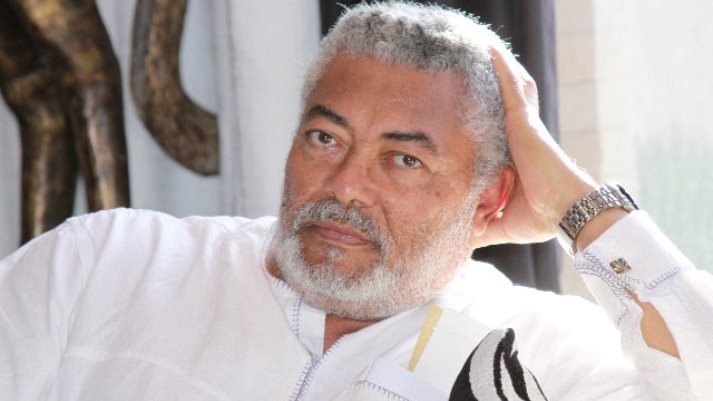




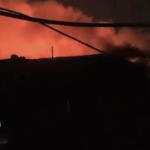


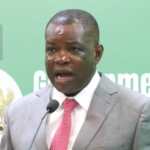
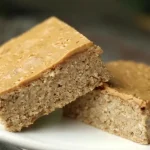







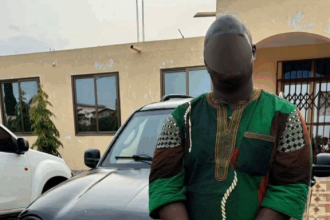
So some were innocent and yet went ahead to execute them. Really out of sheer hatred or because of their tribal affinity. And what made him think he could have succeeded with the intended house cleaning of a certain tribe. The country would have been in total shambles by now.
Why is he coming out with all that ‘confession’. Is it hunting him? I thought he said he was not remorseful of the execution…he should spare us all this bull. The bottom line: we are weak as a country…
Only God can judge his actions